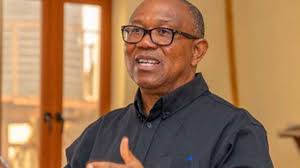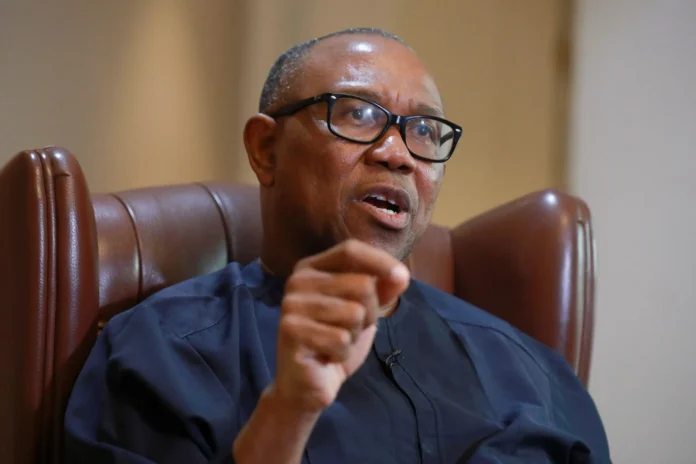In a bid to improve Nigeria’s electoral system, Peter Obi, the 2023 Labour Party presidential candidate, has emphasized the need for the country to draw lessons from South Africa’s approach to elections.
Obi believes that adopting a more robust and transparent electoral system, akin to South Africa’s, is crucial to ensure credible and transparent elections in Nigeria.
Highlighting South Africa’s Electoral Commission:
Obi praised South Africa’s Independent Electoral Commission (IEC) for its efficiency and impartiality, presenting it as a potential model for Nigeria’s Independent National Electoral Commission (INEC).
He suggested that Nigeria could benefit from implementing similar structural reforms to enhance the credibility of its electoral process.
Strengthening Nigeria’s Democratic Process:
By adopting the measures employed by South Africa, Obi believes that Nigeria can strengthen its democratic process and ensure free, fair, and credible elections.
He emphasized that the recent South African election results serve as a shining example of what a transparent and efficient democratic electoral process should look like.

Contrasting South Africa and Nigeria’s Electoral Processes:
Obi highlighted the stark differences between the electoral processes of South Africa and Nigeria, underscoring the lamentable state of Nigeria’s system.
While South Africa boasted a high voter turnout of approximately 60% and over 90% of polling stations opening on time, Nigeria’s 2023 election saw a turnout of less than 30% and significant delays in polling stations. Obi also pointed out the absence of diaspora voting in Nigeria, which was made possible in South Africa’s election.
Challenges Faced by Nigeria:
The 2023 Nigerian election was plagued by allegations of fraud, widespread irregularities, and technical glitches, despite substantial financial investments.
Obi lamented the show of shame that Nigeria presented to the world, emphasizing the need for urgent and comprehensive electoral reforms to restore faith in Nigeria’s democratic governance.
Learning from South Africa’s Example:
Drawing inspiration from the seamless online dissemination of results and the use of state-of-the-art electronic boards by South Africa’s Election Results Center, Obi stressed the importance of transparent and efficient electoral practices.
He argued that Nigeria must learn from South Africa’s commitment to democratic principles and technological advancements to rebuild trust in its democracy.
In Conclusion, Peter Obi’s call for Nigeria to learn from South Africa’s electoral model highlights the pressing need for comprehensive electoral reforms. By adopting a more robust and transparent electoral system, Nigeria can strengthen its democratic process and ensure elections that are free, fair, and credible.
The time for action is now, as Nigeria cannot afford to delay addressing these critical issues. A new Nigeria, built on transparent and efficient electoral practices, is indeed possible.




